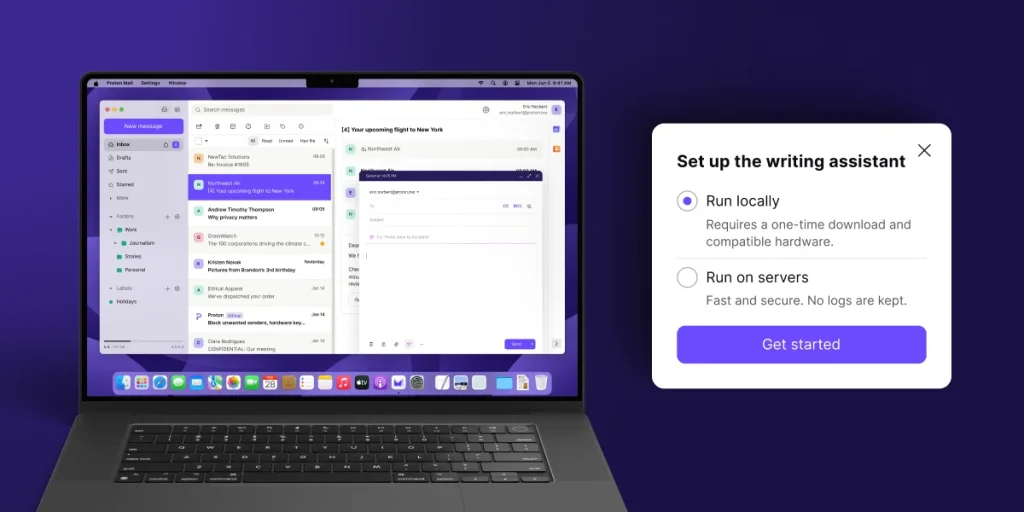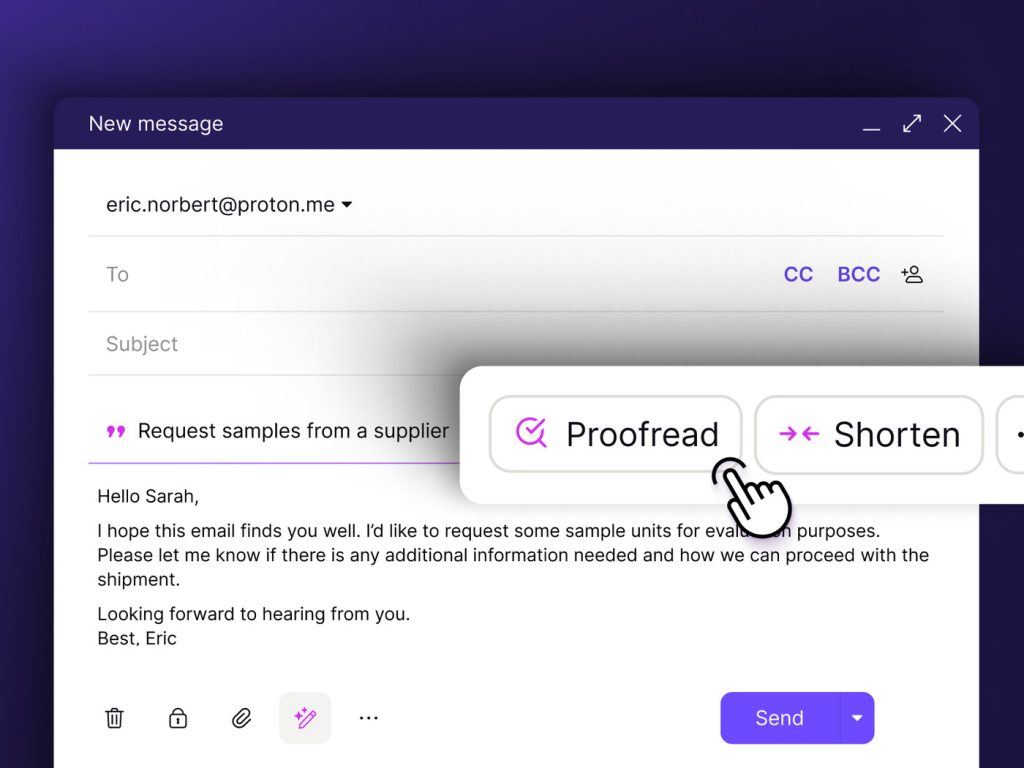Privacy-focused app developer Proton has launched Proton Scribe, an AI-enabled writing assistant designed to help users compose, redraft, and proofread emails. This release follows in the footsteps of Google, which recently introduced its Gemini AI to Gmail.
As a Swiss company renowned for its secure email, VPN, password manager, calendar, cloud storage, and documents, Proton’s new assistant aims to protect users from leaking sensitive data to third-party AI providers. Built on Mistral 7B, an open-source language model from French startup Mistral, Proton Scribe is expected to evolve as the company fine-tunes the model. The tool is available under the open-source GPL-3.0 license, allowing for third-party security and privacy audits.
Proton Scribe can be deployed entirely on local devices, ensuring user data remains on the device and is not shared with external servers. This feature is particularly valuable for enterprises concerned about data privacy. “We realized that irrespective of whether or not Proton builds AI tools, users are going to use AI, often with significant privacy consequences,” said founder and CEO Andy Yen. “Rather than have users copying their sensitive communications into third-party AI tools that often have appalling privacy practices, it would be better to instead build privacy-first AI tools directly into Proton Mail.”

For those less concerned with security, Proton Scribe can also run on Proton’s servers for potentially faster performance, depending on the user’s hardware. Users opting to run the tool locally will need to download the model once, and it will operate on the device without external server interaction. Proton emphasizes that no logs are kept, and data is not shared with third parties for those using its servers. “Only the prompt entered by the user is transmitted to the server, and no data is ever retained after the email draft is created,” a company spokesperson told TechCrunch.
After installation, users can type prompts like “request samples from a supplier” and hit the generate button. The assistant then produces a template email, which users can edit and refine. While the tool does not use local data for personalization, Proton has included “quick actions” to help users edit drafts, change tones, proofread, and make emails more concise. “Over time, we will look to improve Proton Scribe, adding context, etc., but all in a privacy-preserving way,” Proton stated.
After installation, users can type prompts like “request samples from a supplier” and hit the generate button.

The assistant then produces a template email, which users can edit and refine. While the tool does not use local data for personalization, Proton has included “quick actions” to help users edit drafts, change tones, proofread, and make emails more concise. “Over time, we will look to improve Proton Scribe, adding context, etc., but all in a privacy-preserving way,” Proton stated.
Currently, Proton Scribe is limited to email, but the company may extend the tool to other products in the future, including its collaborative document editing app. Starting today, the writing assistant is available for Proton Mail on the web and desktop, with plans to expand to mobile devices. Business users on the Mail Essentials, Mail Professional, or Proton Business Suite plans can access Proton Scribe for an additional $2.99 per month. Those on legacy plans like Visionary or Lifetime will receive access for free, with potential expansion to other consumer plans in the future.







